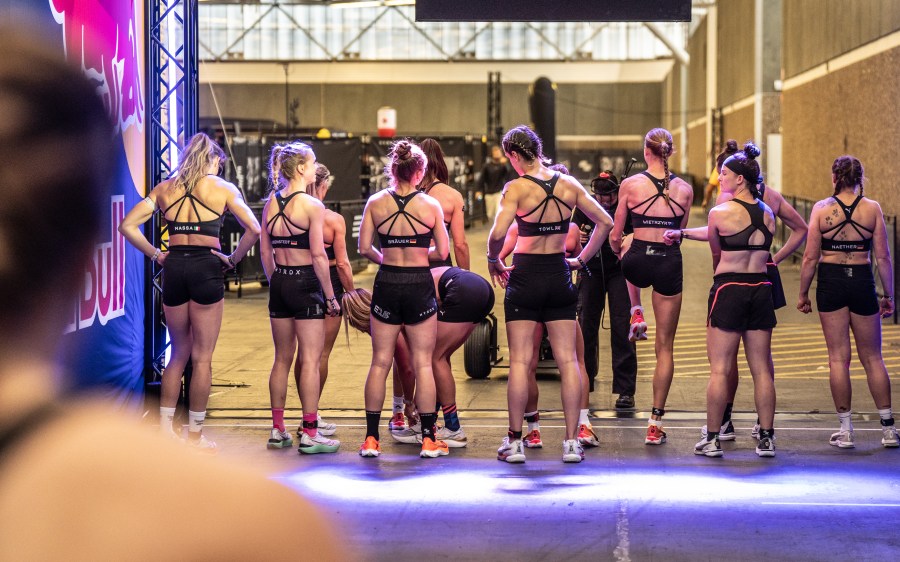Everything you need to know about fuelling for a Hyrox event
The popularity of HYROX has skyrocketed across the world in recent months. Combining a 1km run with eight intense rounds of functional workouts, the event is designed to push participants to their absolute limits. The immense physical demands this places on the body means that, to excel, preparation is key – and that includes fine-tuning your nutrition strategy to support peak performance and recovery., writes FuelHub’s Edward Mather.
Nutritional demands
High-intensity exercise performed at over 70% of VO2 max relies on carbohydrates as the predominant fuel source. To sustain this intensity, ensuring an adequate intake of carbohydrates is essential. This will power your performance and help to delay fatigue. HYROX also induces significant muscle damage, making protein consumption vital for optimal recovery between sessions. You should be aiming for approximately 2g of protein per kilogram of bodyweight per day to rebuild and repair muscle tissue.
Carbohydrate loading and race-week nutrition
Carbohydrate loading is a well-established strategy used by athletes to maximise glycogen stores – the body’s primary energy reserve in muscle. It’s important to focus on increasing your carbohydrate intake 24 to 48 hours before the event, focusing on easily digestible sources like pasta, rice or potatoes.
Avoid overloading the night before, which may leave you feeling bloated or sluggish. Instead, aim for 6g of carbohydrate per kilogram of bodyweight in the two days leading up to race day.
Pro tip: Plan meals in advance to stay on track, and don’t forget hydration. Drinking plenty of water will support your endurance, help to regulate your heart rate, and prevent overheating.
Race day nutrition: timing is everything
Timing your nutrition on race day is crucial for maximising energy and avoiding discomfort. Work backwards from your event start time to create a plan:
3-4 hours before the race
Your final pre-race meal should top up your body’s glycogen stores by focusing on high carbohydrates, low fat and low fibre. A simple, high carbohydrate meal such as overnight oats would be a great option.
Avoid trying new foods and eating too much as this may cause gut issues or make you feel sluggish.
Similarly, high fat/fibre foods take longer to digest, increasing the risk of experiencing issues such as heartburn and indigestion.
Practice makes perfect: Trial your pre-race meal in training sessions weeks before the event to ensure your body responds well.
90-30 minutes before the race
Top up glycogen stores with quick-digesting snacks or liquids. Options include sports drinks, carbohydrate solutions, energy gels, and bananas.
Caffeine can be a useful ergogenic aid, reducing our perception of fatigue which can prove useful as the race gets tough in its latter stages. Caffeine can be taken in pill, gel or liquid form. However, if you haven’t used gels before or practised consuming them during training, it’s best to stick to familiar sources like coffee.
Do you need fuel during the race?
Whether you should consume anything during the race depends on how long you’ll be racing.
- For events under 60 minutes: Pre-race glycogen stores should suffice
- For events over 60 minutes: Incorporate easily digestible carbohydrates like sports drinks or gels to maintain energy levels. Electrolyte-rich fluids can also help to replenish lost sodium and reduce the risk of muscle cramps.
Hydration: a race day essential
During HYROX, core body temperature can spike, and dehydration can set in quickly due to sweat loss.
To perform at your best:
- Pre-race: Begin hydrated by drinking plenty of water in the hours leading up to the event.
- During the race: Sip on fluids regularly, focusing on electrolyte solutions to replace sodium lost through sweat.
- Post-race: Rehydrate thoroughly to promote recovery and replenish fluids.
By tailoring your nutrition to meet the demands of HYROX, you can give yourself a competitive edge. Remember: a well-fed body is a high-performing body. Fuel smart, hydrate thoroughly, and take your preparation as seriously as the race itself!
- Edward Mather, in-house performance nutritionist at is a performance nutritionist at FuelHub, with a BSc in Sport and Exercise Science and an MSc in Sports Nutrition. Ed’s passion lies within creating performance meals that provide the correct nutrients to support optimal recovery, fuel training demands and promote overall health. He is also highly knowledgeable in creating nutritional strategies around competition, as well as weight management, dietary analysis and menu development.






